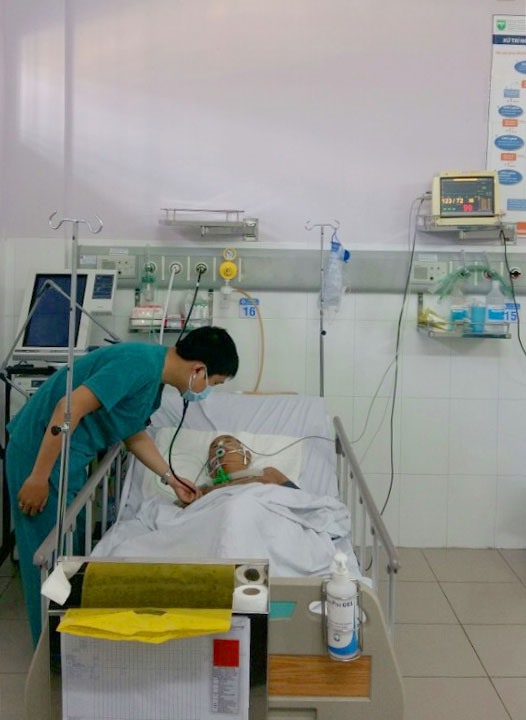 Society
Society

A pulmonary embolism is dangerous and potentially life-threatening. The fatality rate is 60 per cent of the total number of patients with a pulmonary embolism, if they are not treated.
 |
| A doctor at Thủ Đức District Hospital examines a patient after treatment for a pulmonary embolism. Photo courtesy of Thủ Đức District Hospital |
HCM CITY —A 70-year-old patient from HCM City admitted to Thủ Đức District Hospital on April 6, complaining about breathing difficulties, was found to have a life-threatening pulmonary embolism.
After a CAT scan was taken, doctors said that blood clots in the patient’s pulmonary artery were preventing blood from entering the heart and going to the lung.
The patient, who was given anticoagulant drugs to clear the blood clot, is expected to be discharged from the hospital within several days. He will continue taking the drugs.
Dr Lê Duy Lạc, deputy head of the hospital’s Cardiology and Recovery, said: “A pulmonary embolism is dangerous and potentially life-threatening. The fatality rate is 60 per cent of the total number of patients with a pulmonary embolism, if they are not treated.”
A pulmonary embolism can be caused by serious infection, different kinds of contraceptive pills, or immobilization due to stroke or broken bones, he said.
Surgeries for joint replacement can have complications such as hypercoagulability, leading to pulmonary embolism. The patient may have chest pains and cough up blood.
Patients with these symptoms should be brought to hospital immediately, doctor said.
Health experts said that 80 per cent of patients with pulmonary embolism do not have symptoms and it can be difficult to detect.
According to the US Center for Disease Control and Prevention, the condition is also a complication of deep vein thrombosis, a medical condition occurring when a blood clot forms in a deep vein, usually developing in the lower leg, thigh or pelvis, but also in the arm.
Health experts said that a pulmonary embolism could develop more easily in people aged 60 or over, with relatives who have had the same problem, or in patients who are obese or overweight.
Smoking can also increase the risk of a pulmonary embolism.
In Việt Nam, there are no official statistics on the prevalence of the condition, doctors have said. —VNS




